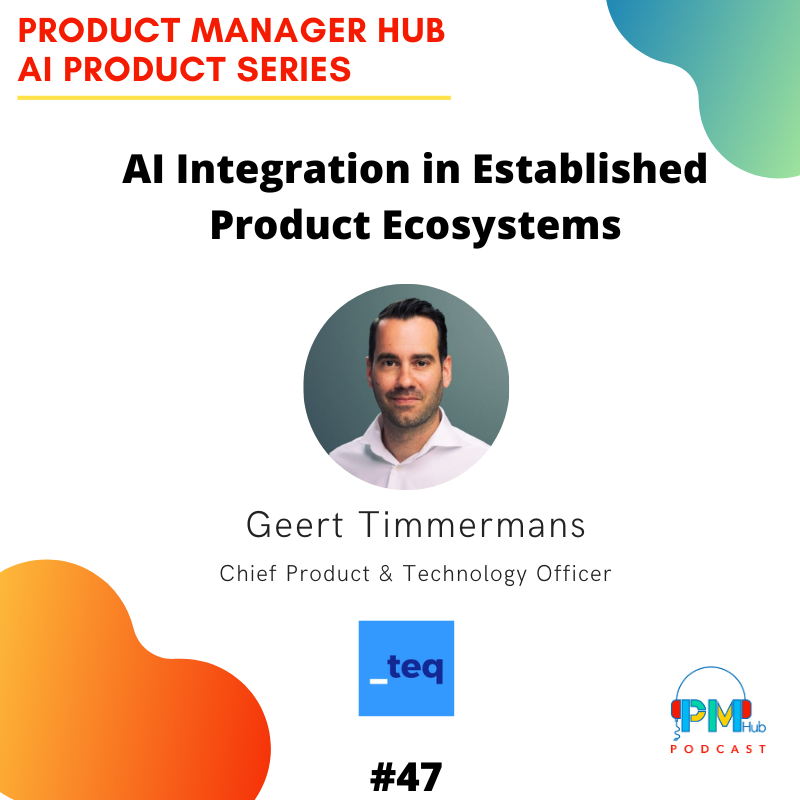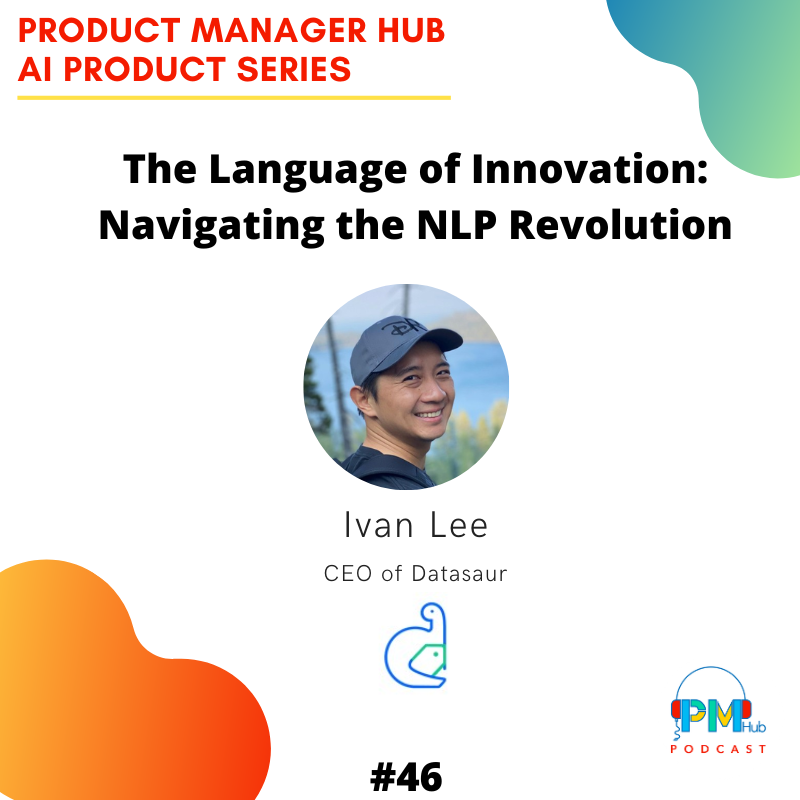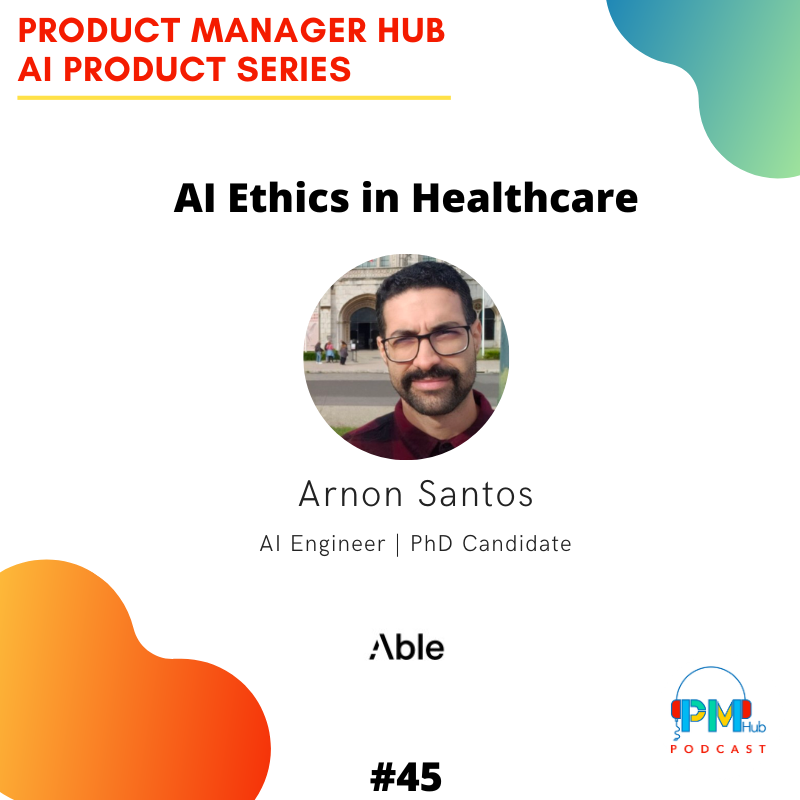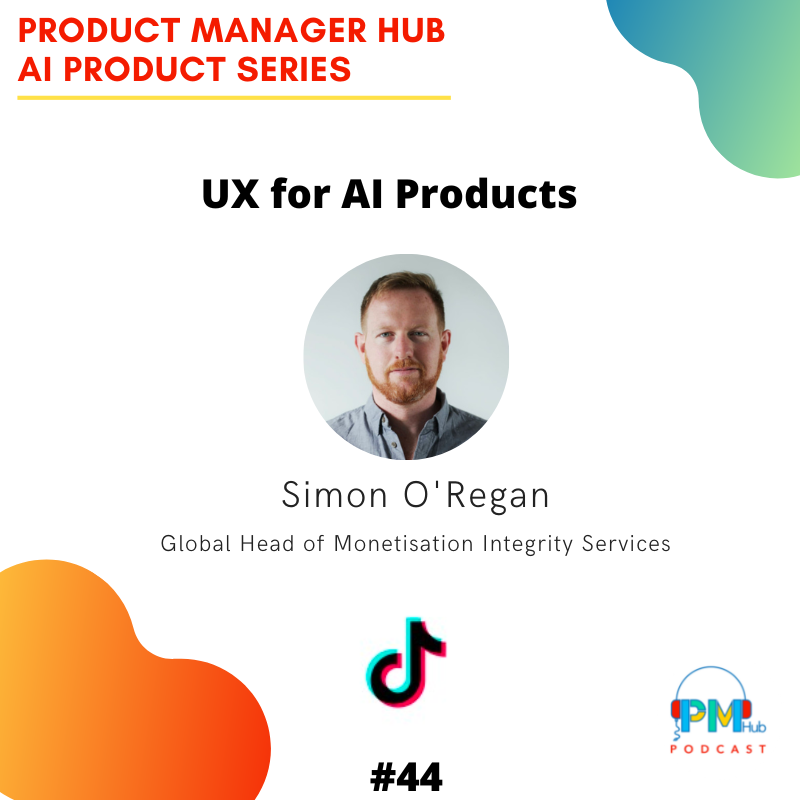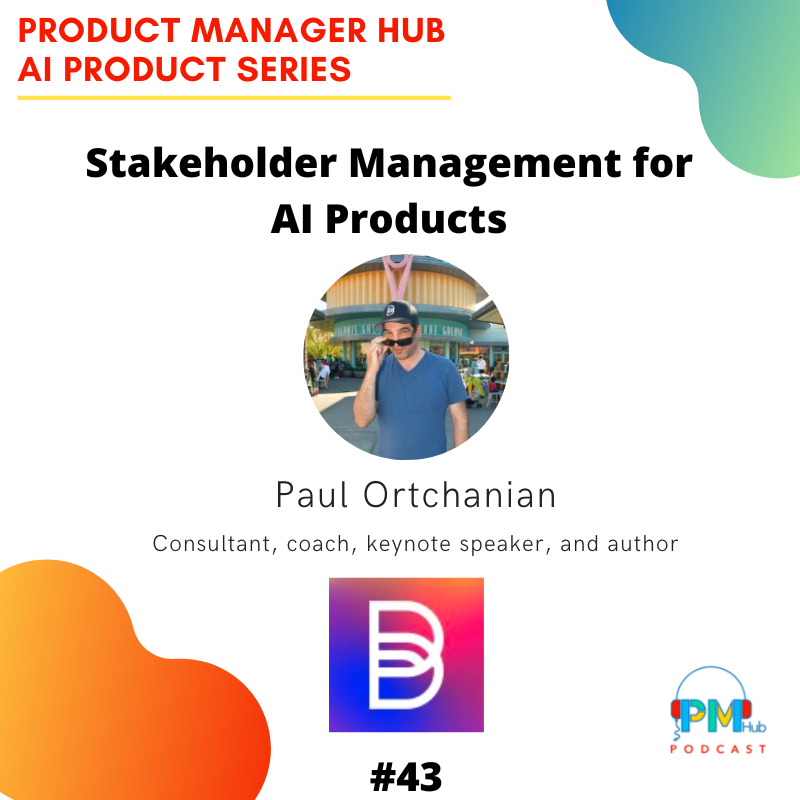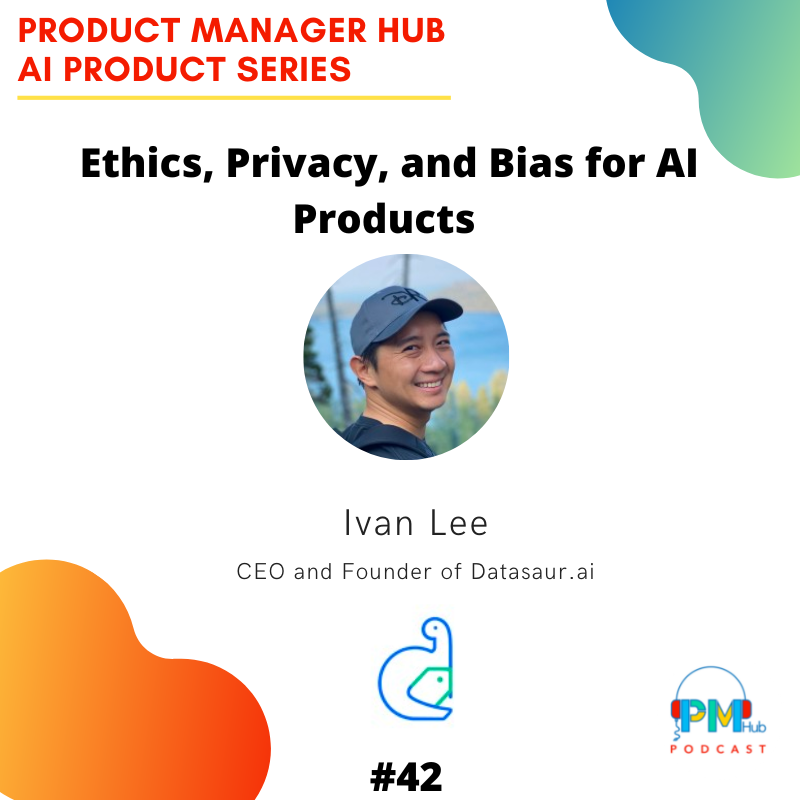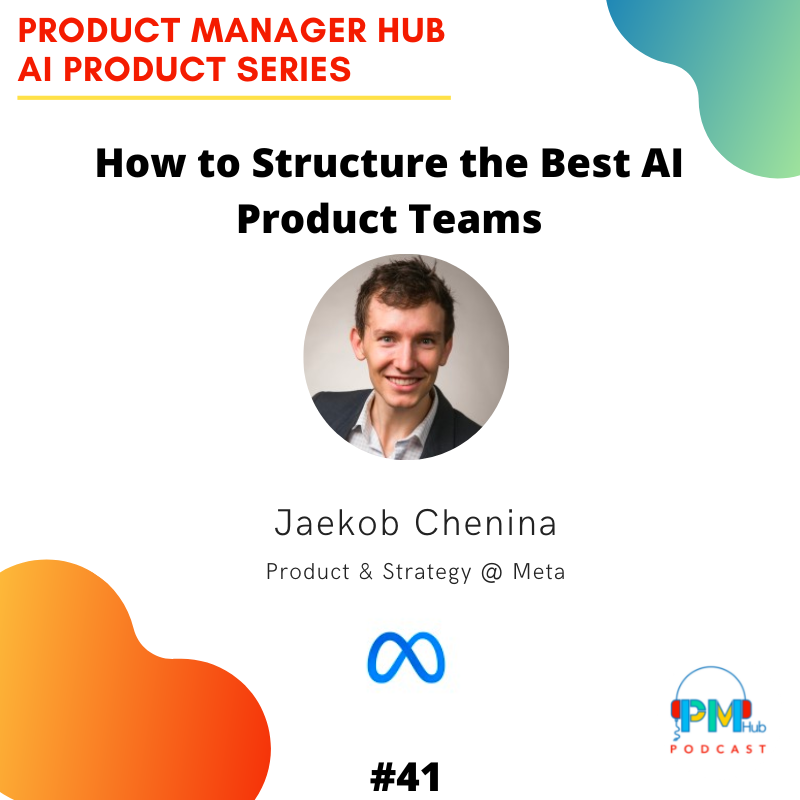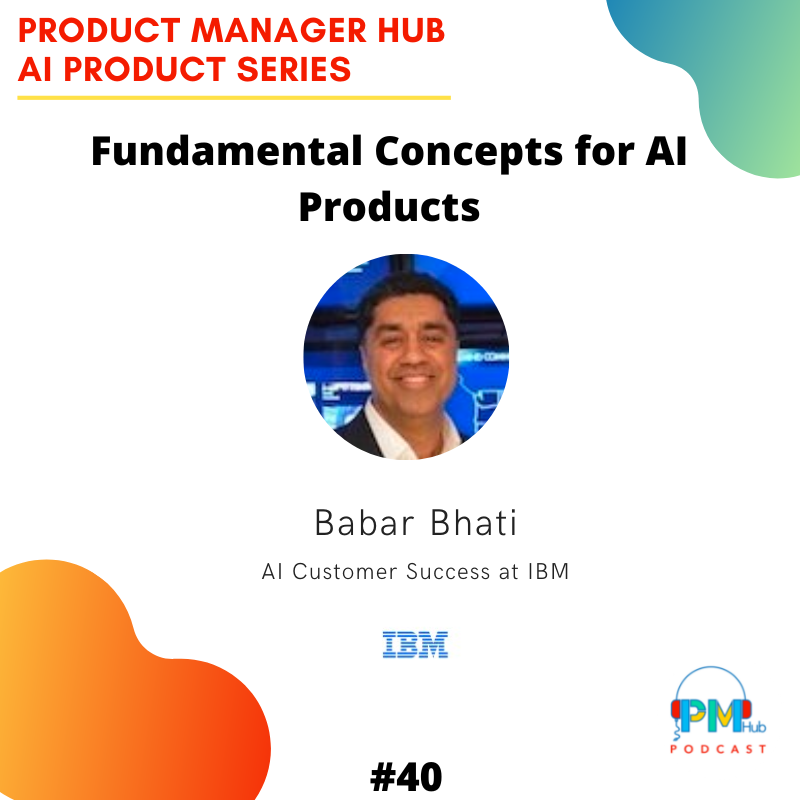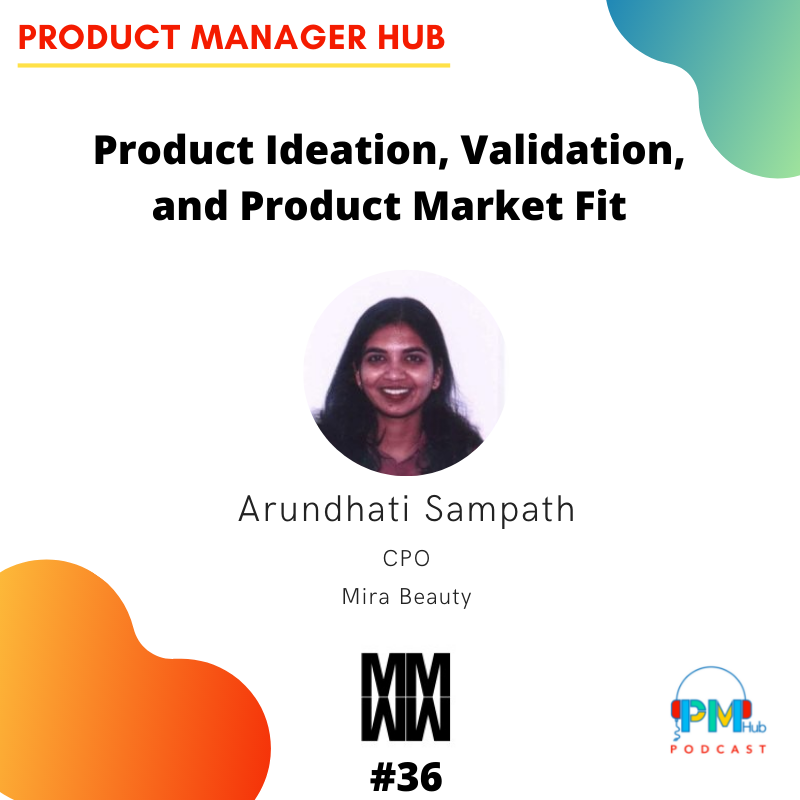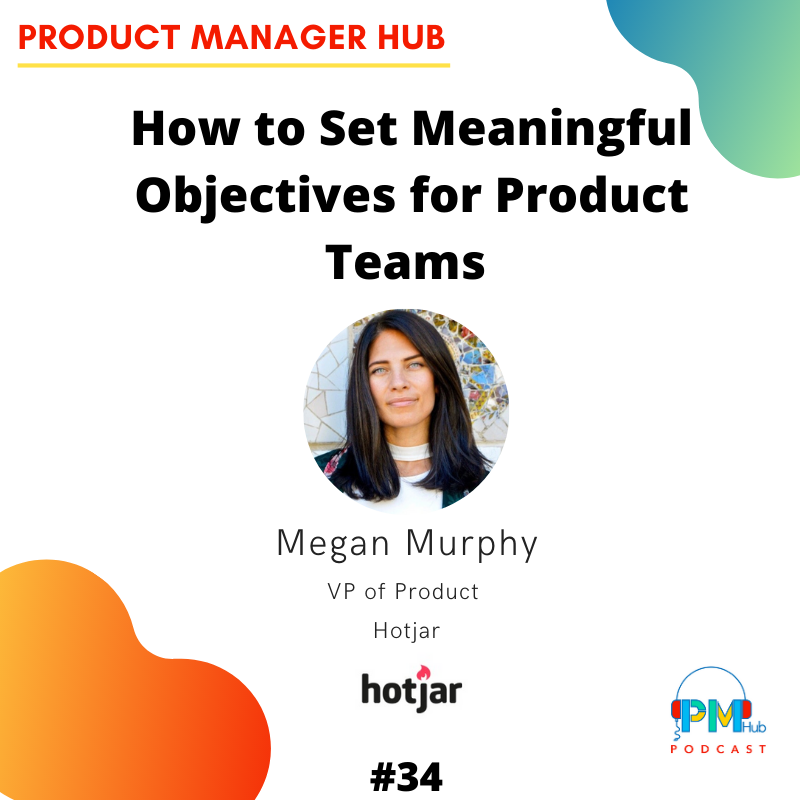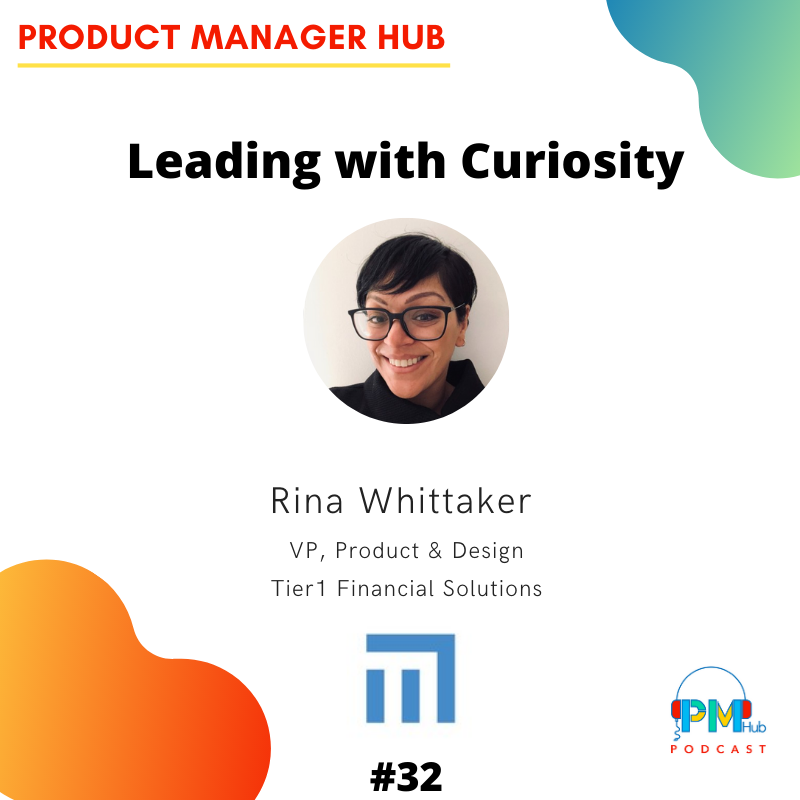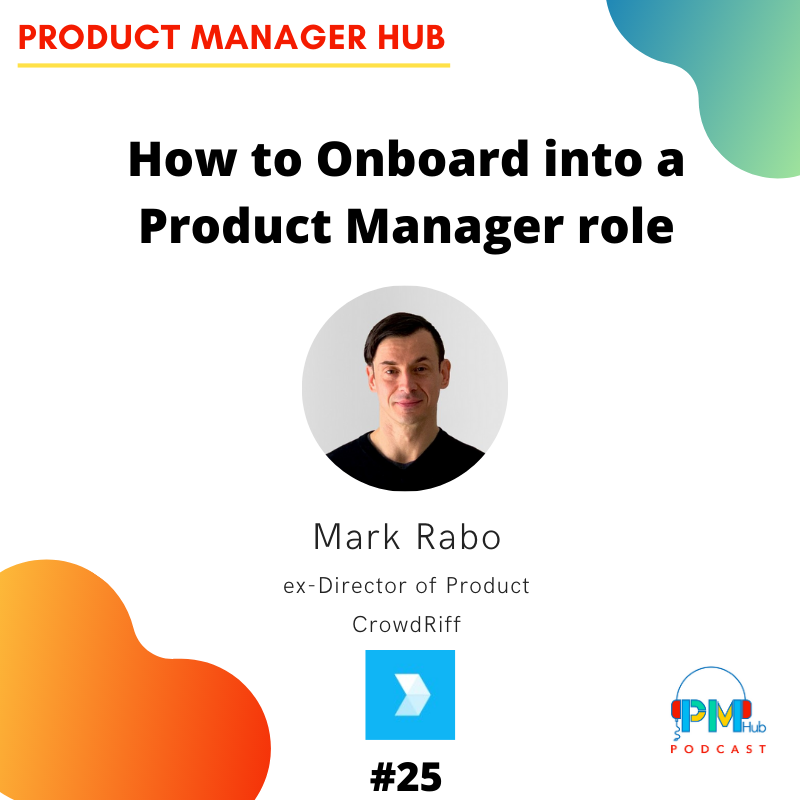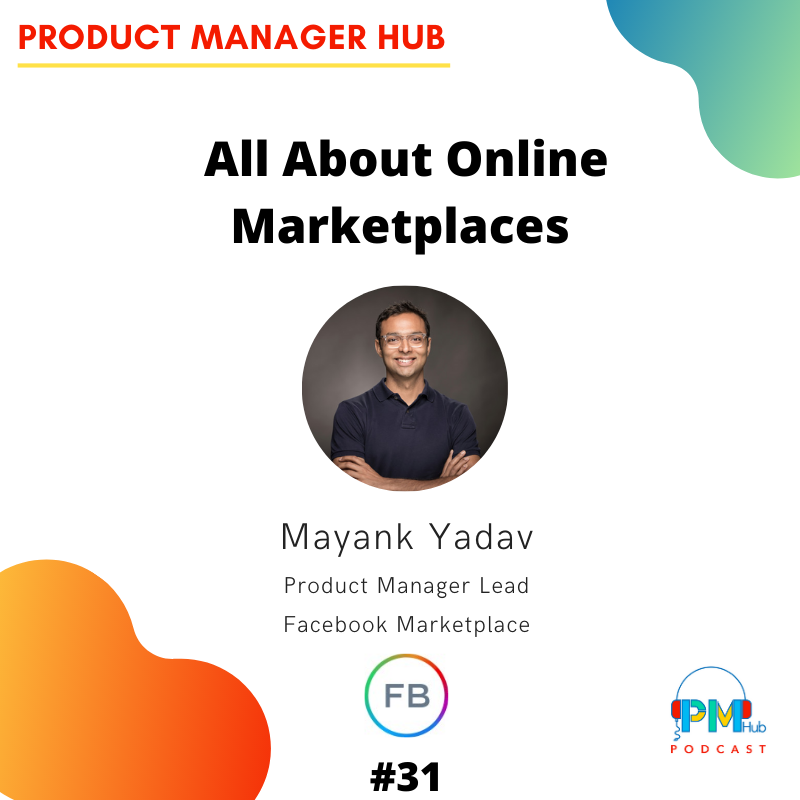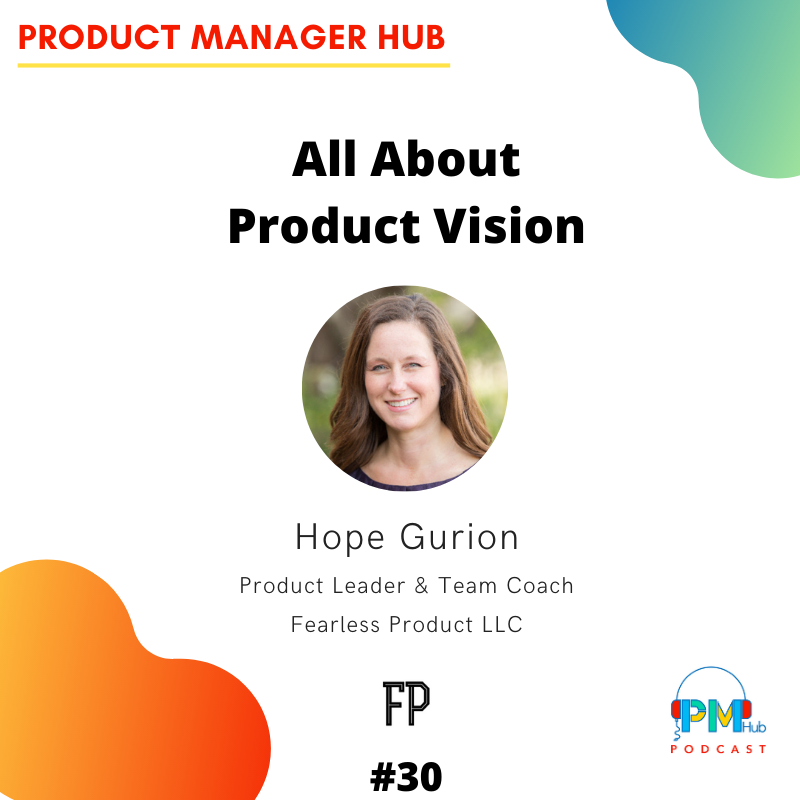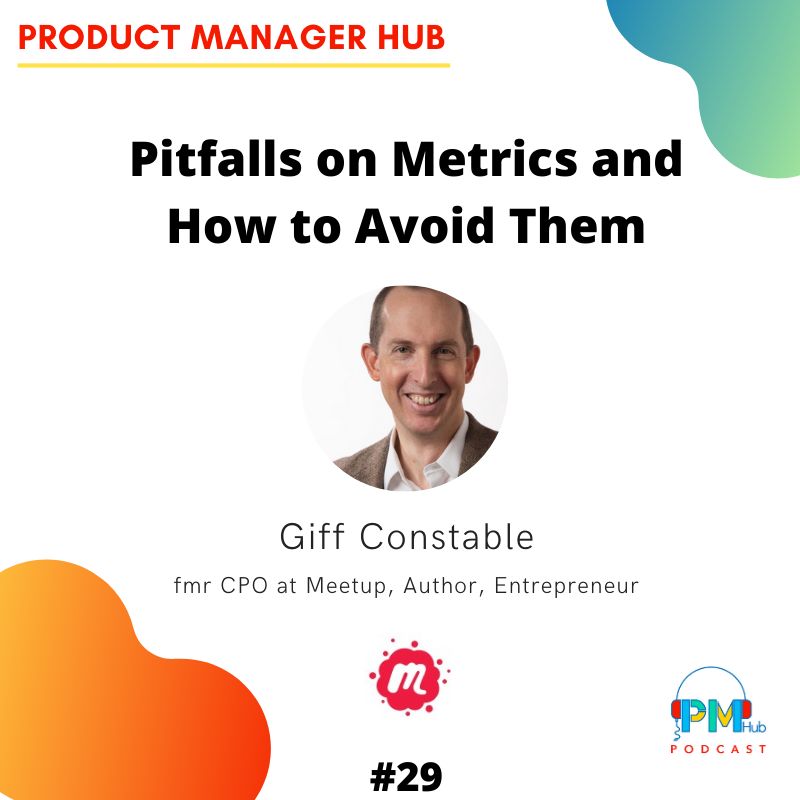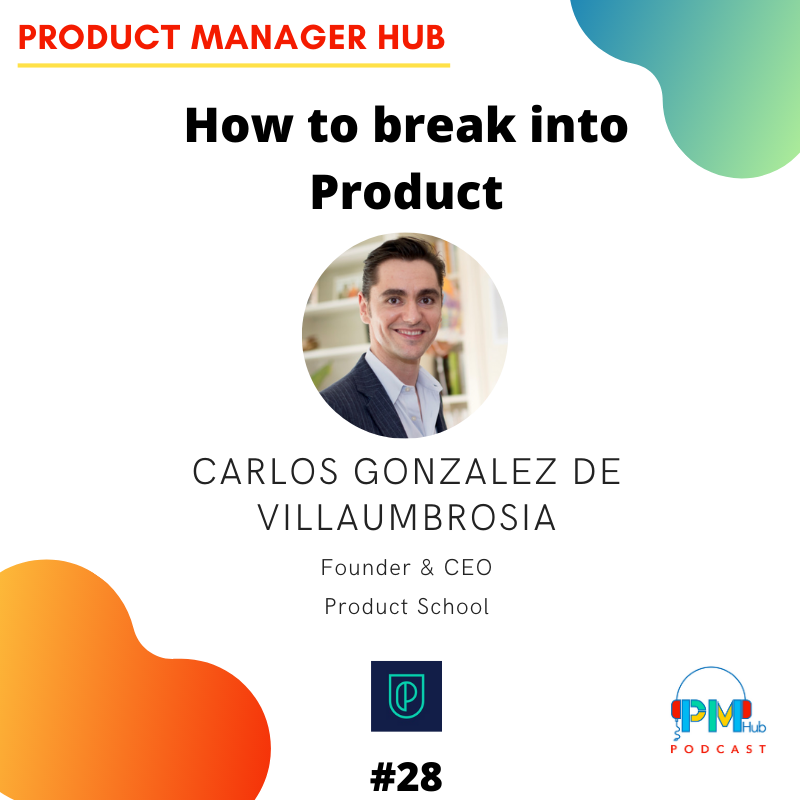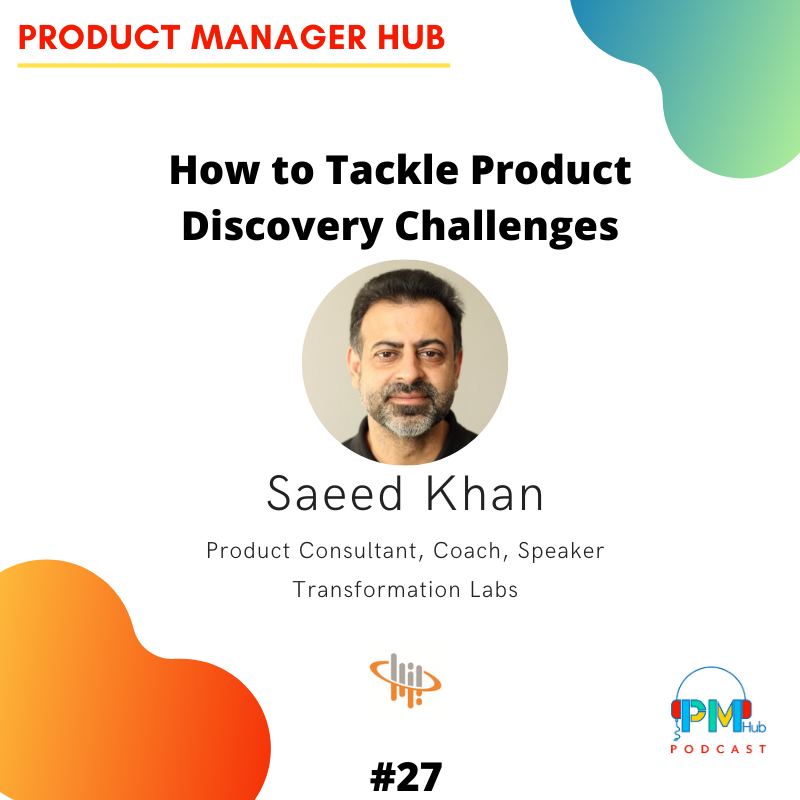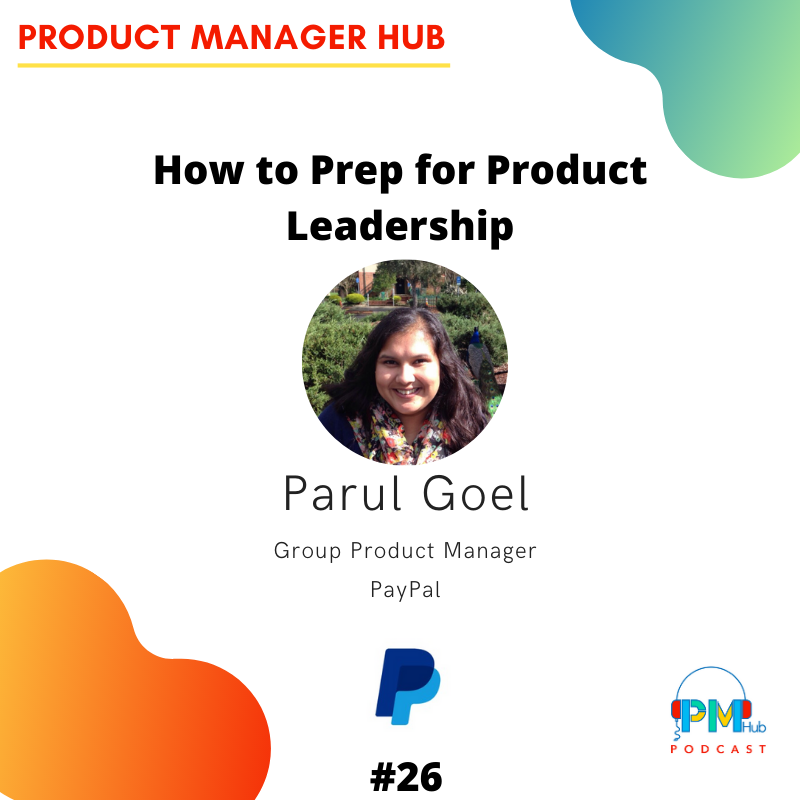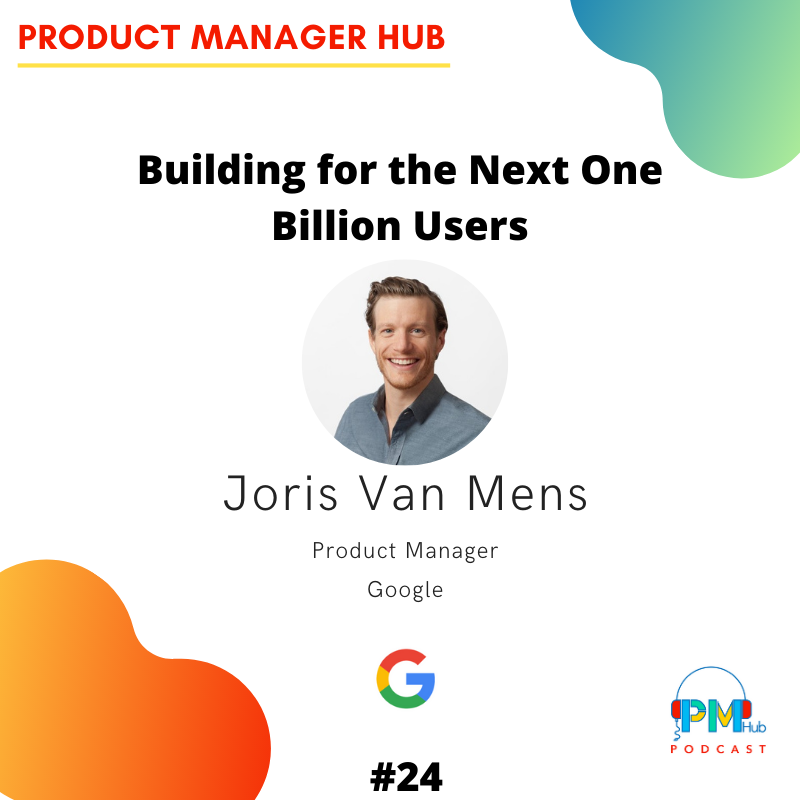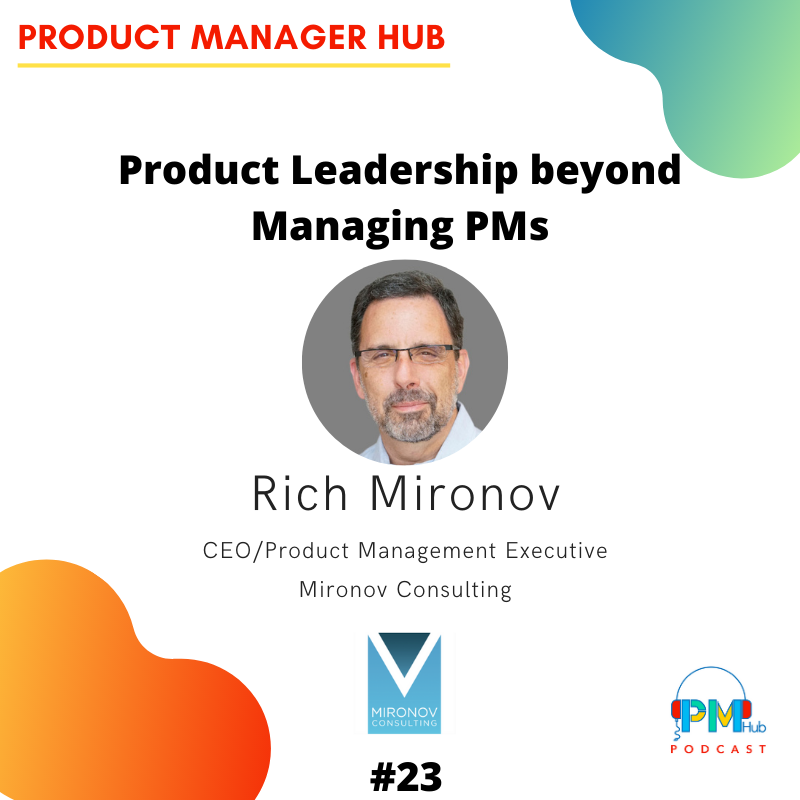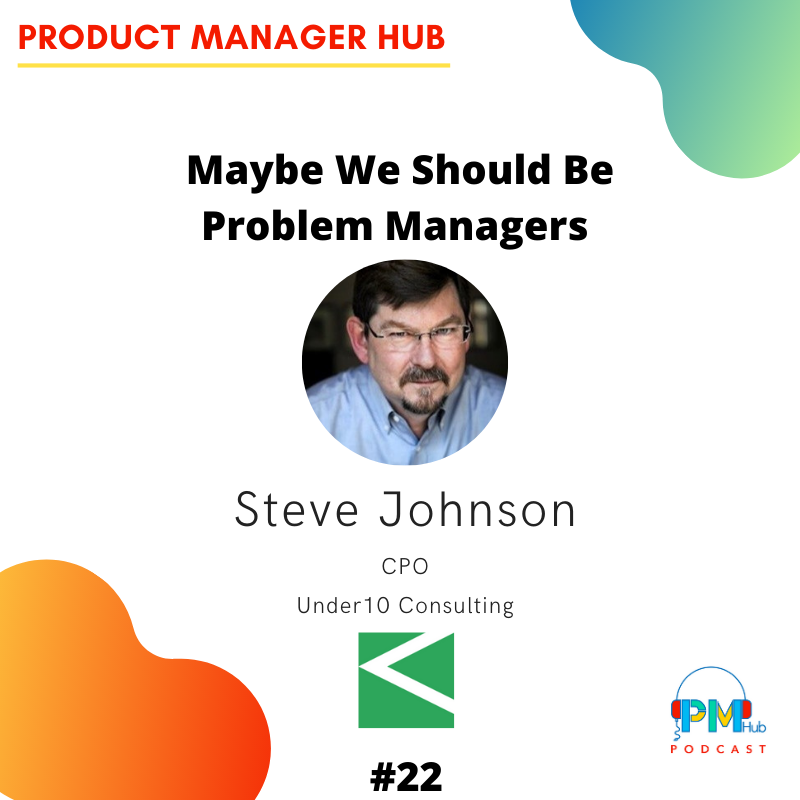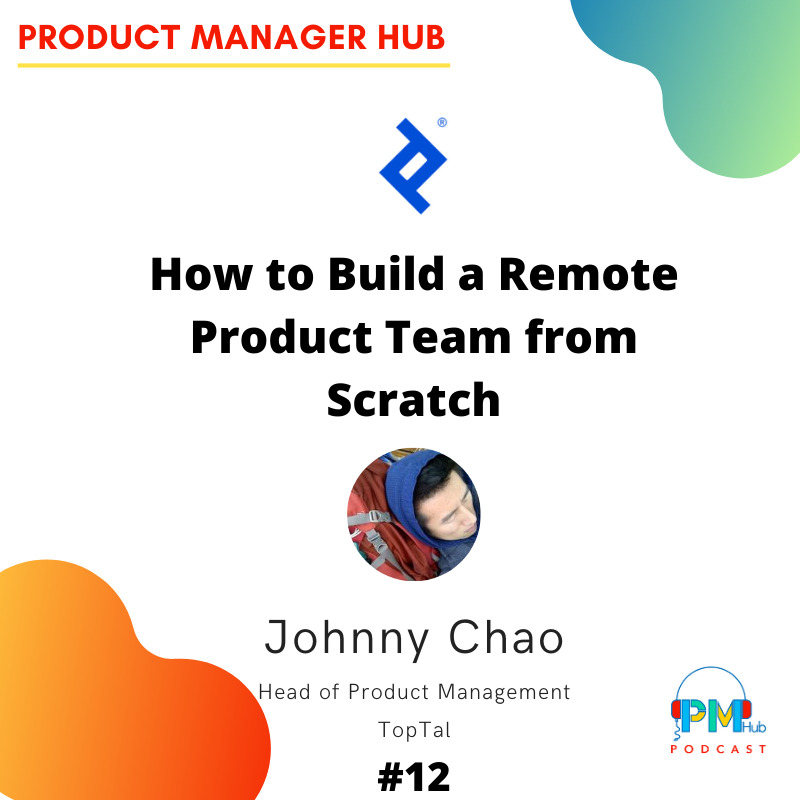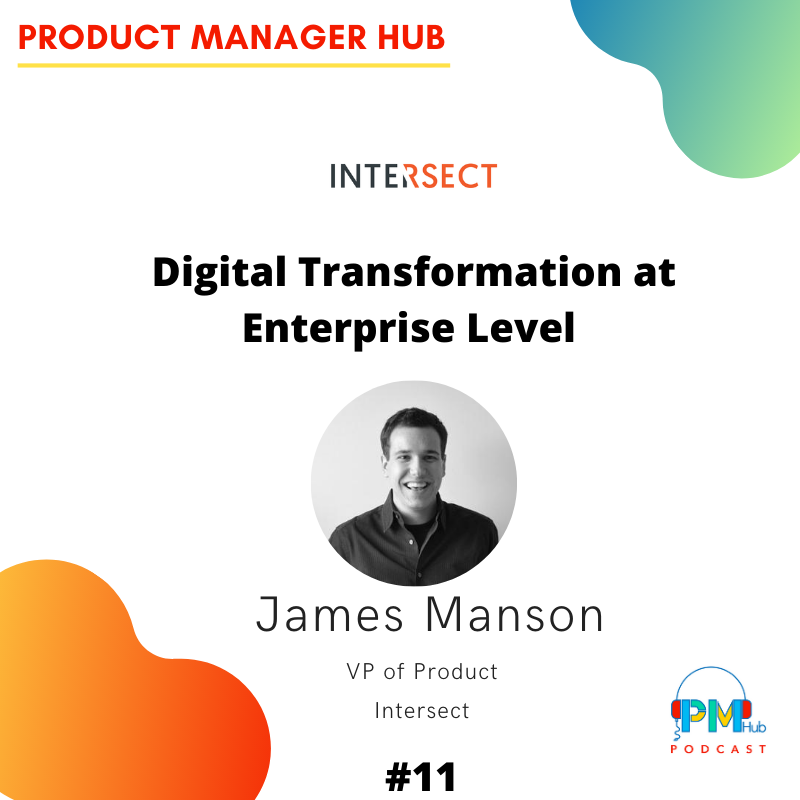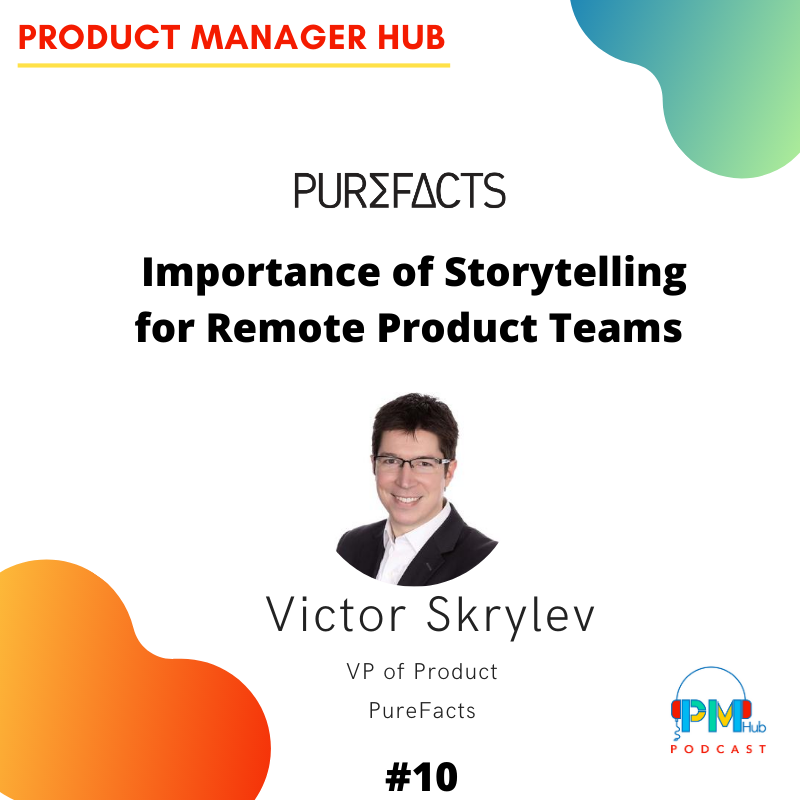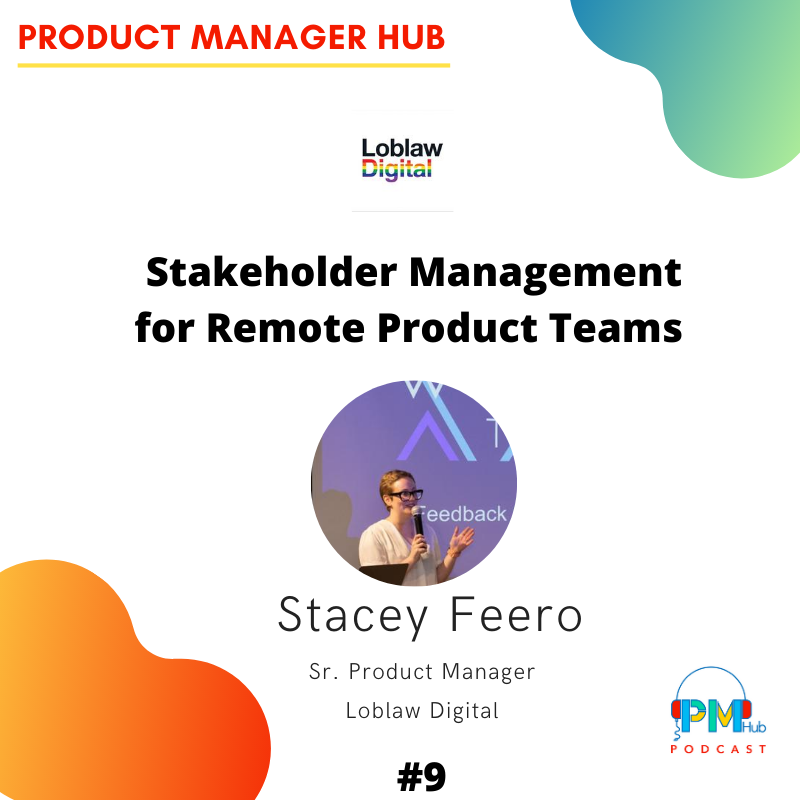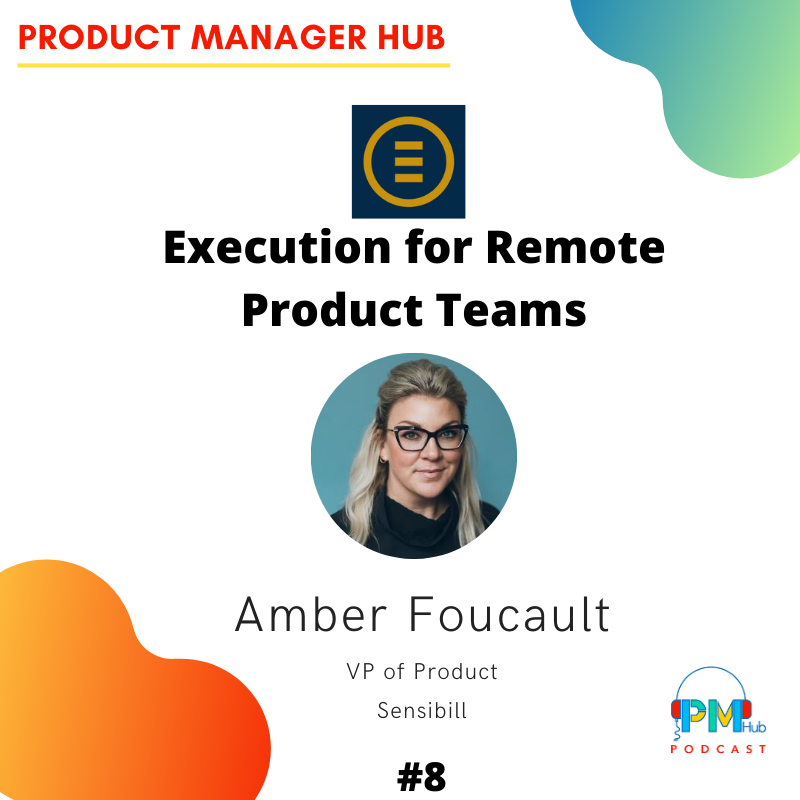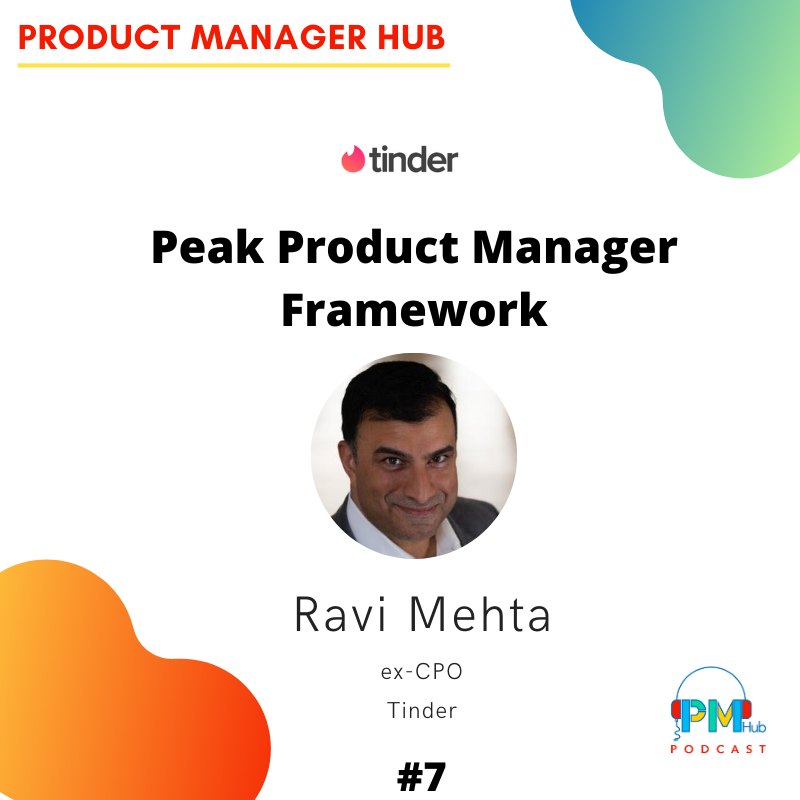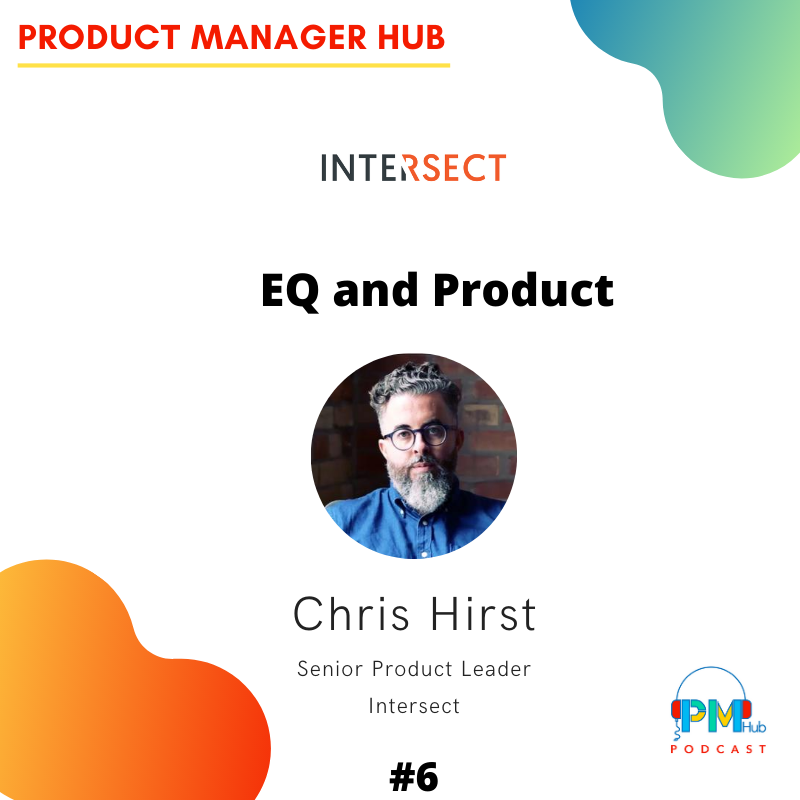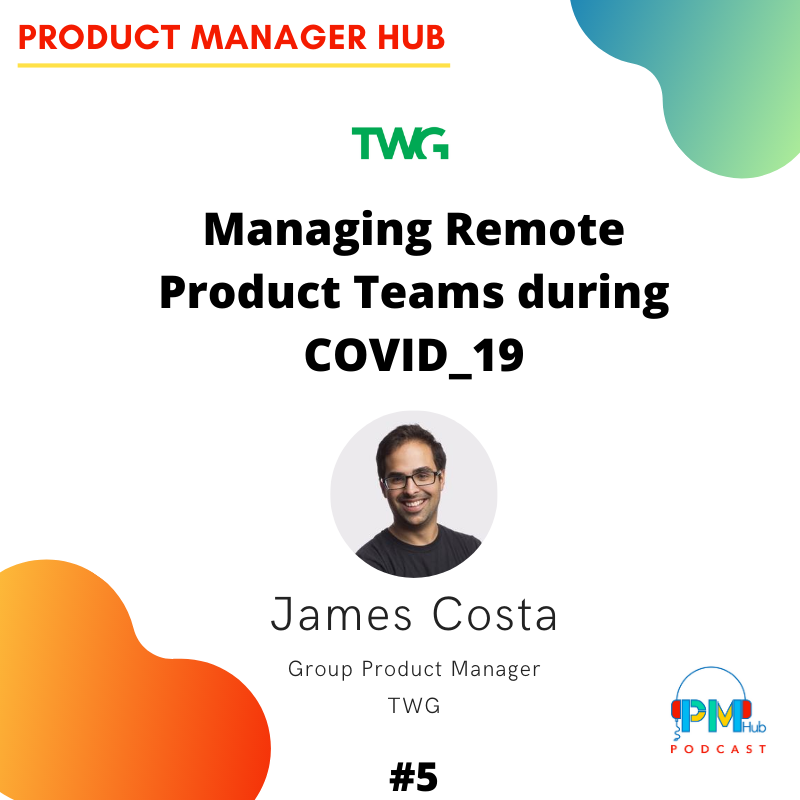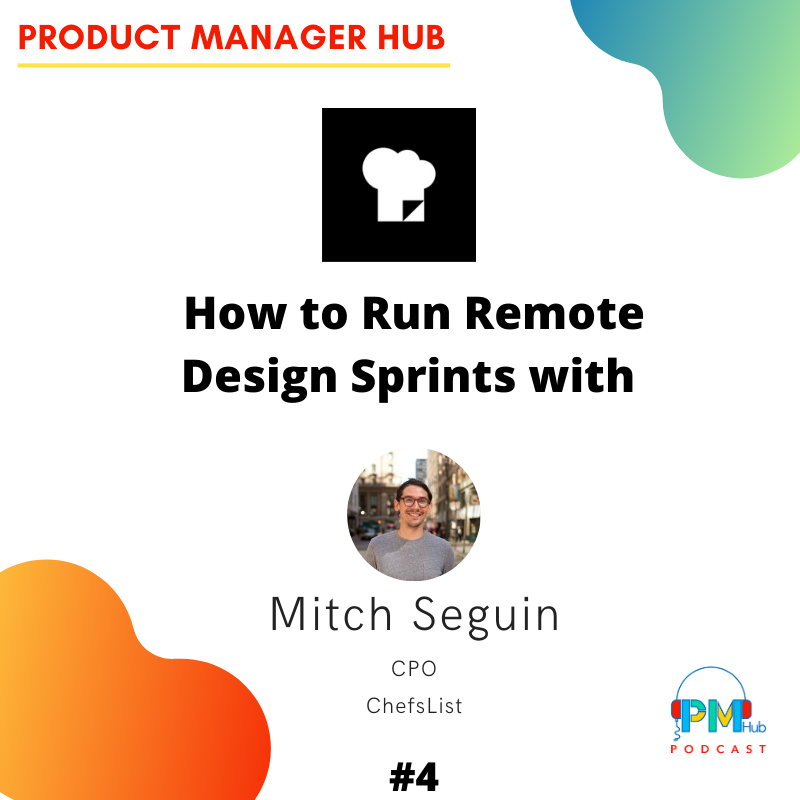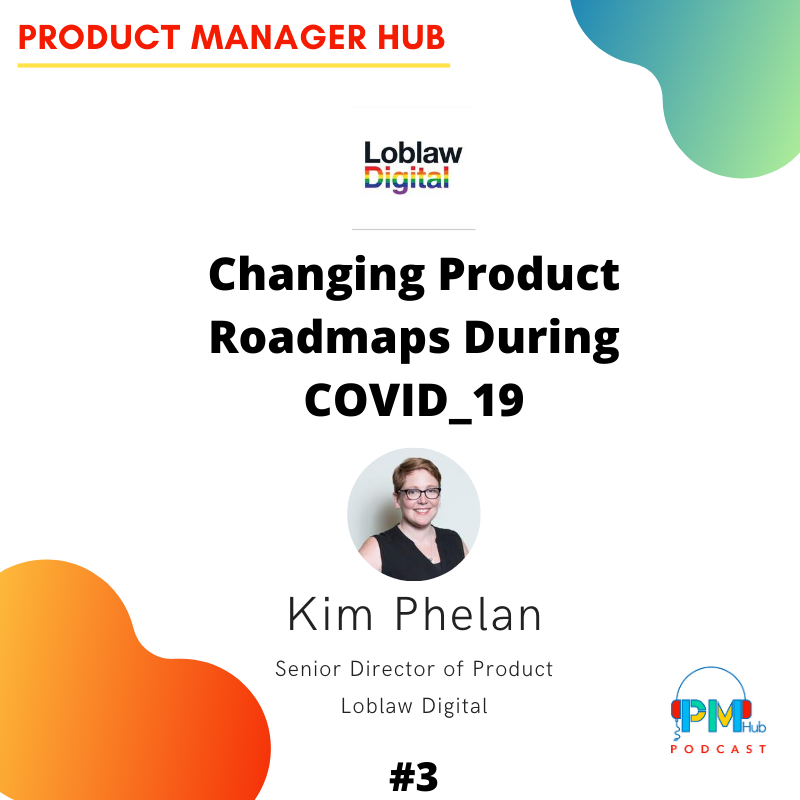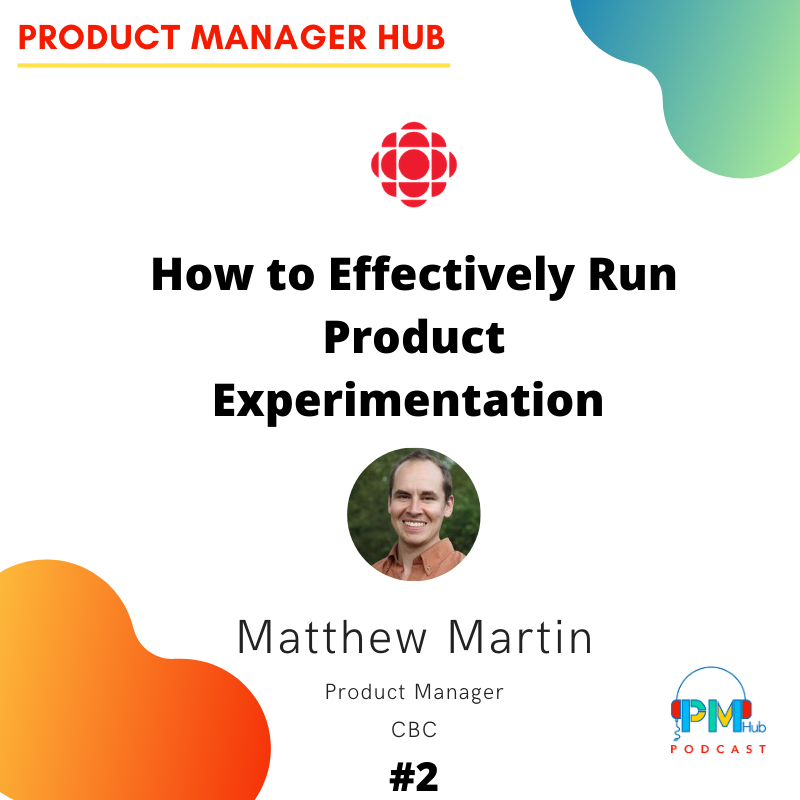Discover Product Manager Hub (PM Hub)
Product Manager Hub (PM Hub)

 Product Manager Hub (PM Hub)
Product Manager Hub (PM Hub)
Author: Cyrus Shirazian
Subscribed: 43Played: 443Subscribe
Share
© 2022 - Product Manager Hub (PM Hub) by Cyrus Shirazian
Description
PM Hub Podcast is a weekly podcast for Product people and tech entrepreneurs to learn from top experts in the field. Subscribe now so you don’t miss an episode! Questions? Comments? Feedback? Reach out to your host Cyrus Shirazian on Twitter at @ceslamian or LinkedIn
48 Episodes
Reverse
Summary
Summary
In this conversation, Cyrus and Lauren discuss the intersection of Agile and data science, specifically focusing on the challenges of shipping AI-enabled products quickly. They emphasize the importance of democratizing AI within organizations and the need for product managers to understand AI and ML concepts. They also discuss the prioritization of AI ML feature sets per quarter and the balance between quick wins and long-term strategic initiatives. Lauren shares her recommendations for getting buy-in and support from leadership, including listening, scenario planning, and making informed decisions.
Takeaways
Democratizing AI within organizations is crucial for enabling more people to understand and work with AI and ML.
Product managers should prioritize AI ML feature sets based on business goals and market expectations.
Balancing quick wins and long-term strategic initiatives is important for delivering outcomes and driving growth.
Getting buy-in and support from leadership requires listening, scenario planning, and making informed decisions.
Understanding the constraints and goals of different teams and stakeholders is essential for successful product management in the AI ML space.
Chapters
00:00 Introduction and Background
03:25 Challenges of Delivering Business Value Quickly
06:52 Democratizing AI within Organizations
11:05 Scoping AI/ML Feature Sets for Revenue Outcomes
14:12 Staying Up-to-Date with New Technologies
27:40 Incorporating AI into Product Strategies
28:54 Aligning Organizational Expectations and Goals
30:09 Understanding Constraints and Goals
33:10 Planning and Execution
36:04 Balancing Quick Wins and Long-Term Strategic Initiatives
40:17 Gaining Buy-In from Leadership
43:10 Democratizing Knowledge about AI and ML
Keywords
Agile, data science, intersection, challenges, shipping, AI-enabled products, democratizing AI, product managers, prioritization, feature sets, quick wins, long-term strategic initiatives, buy-in, leadership
Summary
Geert Timmermans, CPTO at StoryTech, shares his background and experience in integrating AI into product development. He emphasizes the importance of bridging the gap between engineering and product teams to maximize the value of AI. The challenges organizations face when integrating AI include the need for the right skillset, avoiding gimmicks, and focusing on the value AI brings to customers. Timmermans suggests a strong focus on product discovery and continuous discovery to ensure AI is integrated effectively. He also highlights the importance of giving engineers the freedom to experiment and collaborate with the product team. AI should be seen as an enabler and an opportunity to enhance and augment human capabilities, rather than a threat or replacement. It can assist in various industries, such as healthcare and marketing, by speeding up processes and improving quality. The adoption of AI requires a mindset shift and a willingness to upskill. It is important to build AI architecture in a way that allows for flexibility and the ability to plug in different models and suppliers. Data readiness is a challenge for many organizations, and a phased approach to AI implementation can help overcome this by starting small and gradually scaling up.
Takeaways
Bridging the gap between engineering and product teams is crucial for successful AI integration.
Product discovery and continuous discovery are essential for effective AI integration.
Avoid gimmicks and focus on the value AI brings to customers.
Give engineers the freedom to experiment and collaborate with the product team. AI should be seen as an enabler and an opportunity to enhance and augment human capabilities.
AI can assist in various industries by speeding up processes and improving quality.
The adoption of AI requires a mindset shift and a willingness to upskill.
Building AI architecture with flexibility and the ability to plug in different models and suppliers is important.
Data readiness is a challenge, and a phased approach to AI implementation can help overcome this.
Chapters
00:00 Geert's Background and Role as CPTO
07:06 Challenges of Integrating AI into Established Product Ecosystems
10:08 The Importance of Collaboration between Engineering and Product Teams
12:27 Product Discovery and Continuous Exploration for AI Integration
14:23 AI as a Foundational Aspect of Product Development
14:49 Introduction and Product Discovery
19:20 Collaboration between AI and Software Development Teams
36:09 The Phased Approach to AI Integration
40:39 The Challenges and Realities of AI
48:10 Data Quality and IP Protection
51:47 AI as an Enabler, Not a Threat
Keywords
Geert Timmermans, CPTO, StoryTech, background, integrating AI, product development, engineering, product teams, skillset, value, challenges, product discovery, continuous discovery, engineers, collaboration, AI, enabler, opportunity, enhance, augment, assist, healthcare, marketing, adoption, upskill, architecture, flexibility, data readiness, phased approach
Summary
In this conversation, Cyrus and Ivan discuss various topics related to NLP (Natural Language Processing) and its impact on AI. They cover Ivan's background in AI and NLP, pivotal moments in his career, the current state of the NLP industry, best practices for data collection and NLP-powered products, the challenges of scaling LLM-POCs (Large Language Models Proof of Concepts) into production, and the ethical considerations of NLP. They also touch on the future of NLP and AI, including the potential for AI agents and the role of NLP in unlocking human creativity.
Takeaways
NLP is revolutionizing AI by enabling machines to understand and process human language.
Data collection and the design and build of NLP-powered products require careful consideration and alignment with business metrics.
Labeling data for NLP models can be time-consuming and expensive, and automation tools can help save time and money.
Ensuring consistency and accuracy in NLP models is crucial, especially when dealing with multiple correct answers and user intent.
The future of NLP and AI holds exciting developments, such as multimodal language understanding and unlocking human creativity.
Ethical considerations are essential in the application of NLP, and measures must be taken to protect user privacy and ensure fairness.
Integrating NLP into products and services requires a positive and forward-thinking mindset, embracing the potential of NLP to enhance user experiences and drive innovation.
Chapters
00:00 The Current State of NLP Industry
00:15 Pivotal Moments in Ivan's Career
03:24 Advancements in NLP and LLMs
14:27 Data Labeling and Saving Time and Money
17:54 Impact of Lawsuits and Real-Time Use Cases on User Experience
18:51 Future-Proofing Products and Fine-Tuning Models
19:52 Standardization and Automation in Model Development
21:19 Scaling LLM-POCs into Production Environments
23:03 Complexity of Multiple Truths and User Intent in NLP
24:20 Best Practices for Labeling and Model Training
27:01 Case Study: Impact of DataSaur's NLP Technology on the Legal Industry
28:55 Ensuring Consistency and Accuracy in Model Output
34:14 Ethical Considerations in NLP and AI
39:04 Exciting Developments in NLP and AI
45:18 Advice for Integrating NLP into Products and Services
Summary
In this conversation, Arnon discusses the ethical concerns surrounding AI in healthcare, including privacy and data protection, explainability and liability, and the balance between regulations and innovation. He also explores the role of clinicians in the adoption of AI, the importance of informed consent and patient education, and the need for multidisciplinary discussions to navigate the ethical challenges. Arnon envisions the widespread adoption of personalized medicine integrated with telemedicine as the most significant change in healthcare as a result of AI in the next decade.
Takeaways
Privacy and data protection are paramount in AI healthcare, and regulations like HIPAA and GDPR need to be adaptable to the evolving AI landscape.
Explainability and liability are crucial in building trust and ensuring that AI is used as a tool to enhance human decision-making, not replace it.
Clinicians play a vital role in ensuring the ethical use of AI in medicine and should engage in multidisciplinary discussions with AI experts, ethicists, and legal professionals.
Patient education and informed consent are essential to empower patients and ensure they have a say in how their data is handled.
The future of healthcare will likely involve the widespread adoption of personalized medicine integrated with telemedicine, breaking down geographic and economic barriers to high-quality care.
Chapters
00:00 Introduction and Background
03:01 Ethical Concerns in Healthcare AI
06:04 Privacy and Data Protection
07:25 Explainability and Liability
08:28 Balancing Regulations and Innovation
10:40 Using Synthetic Data
11:58 Addressing Bias in Healthcare AI
19:21 The Role of Clinicians in AI Healthcare
25:03 Informed Consent and Patient Education
30:18 Educating Healthcare Institutions and Regulatory Bodies
31:44 The Evolving Role of Clinicians
35:37 Regulations and the Future of Healthcare AI
40:05The Future of Personalized Medicine and Telemedicine
In this episode with Simon O'Regan, you will learn:
What is UX for AI products and why does it matterHow does UX for AI products change depending on the type of productSimon's overall strategy for UX part of AI Products
Intro music by Peter Boros of The Nameless Citizens
In this episode with Paul Ortchanian, you will learn:
How do you figure out the right stakeholders for an AI product that you’re working onWhat are some unique challenges for stakeholder mgmt for AI products?Paul's overall strategy for managing stakeholders for AI products?
Intro music by Peter Boros of The Nameless Citizens
In this episode with Ivan Lee, you will learn:
Some ethical concerns that AI products have raised for usersHow can an AI PM build trust with their users
Intro music by Peter Boros of The Nameless Citizens
In this episode with Jaekob Chenina, you will learn:
Why do many AI initiatives fail?What kind of skill sets do you need on an AI Product team and what each role does?What are some ways to assemble an AI Product team?
Intro music by Peter Boros of The Nameless Citizens
In this episode with Babar Bhati, you will learn:
Structure of AI teamsDifference between a regular algorithm vs an AI algorithmMain AI fields and their differences
Intro music by Peter Boros of The Nameless Citizens
In this episode with Daniel Elizalde, you will learn:
What do you consider emerging tech and why is it importantWhat are some myths about leveraging emerging techDaniel's overall strategy for leveraging emerging tech for a business
Intro music by Peter Boros of The Nameless Citizens
In this episode with Farbod Saraf, you will learn:
What is PAD about and how it can help you in product discoveryHow to effectively run product alignment meetings?
Intro music by Peter Boros of The Nameless Citizens
In this episode with Lauren Chan Lee, you will learn:
What is Product Decagon, how did it come to be and how it can help you level up your Product career
Get the free cheat sheet with all actionable tips and notes from this episode in a one-page PDF at bit.ly/pmhub37
Intro music by Peter Boros of The Nameless Citizens
In this episode with Arundhati Sampath, you will learn:
How to come up with Product ideasHow to validate Product ideas and navigate trade-offs Challenges and best practices around Product ideas
Get the free cheat sheet with all actionable tips and notes from this episode in a one-page PDF at bit.ly/pmhub36
Intro music by Peter Boros of The Nameless Citizens
In this episode with Rapha Cohen, you will learn about:
Rapha’s insights on AI, frameworks, principles behind building great Products and Product teams
Intro music by Peter Boros of The Nameless Citizens
In this episode with Anu Bharadwaj, you will learn:
How to adopt asynchronous communication for distributed teamsHow to setup the culture for distributed teamsStrategies you can apply to grow and scale your distributed team
Get the free cheat sheet with all actionable tips and notes from this episode in a one-page PDF at bit.ly/pmhub33
Intro music by Peter Boros of The Nameless Citizens
In this episode with Megan Murphy, you will learn:
Challenges around applying OKRs to set objectivesMegan’s approach on setting objectives to rally the Product teamHow to align stakeholders around objectives
Intro music by Peter Boros of The Nameless Citizens
In this episode with Rina Whittaker, you’ll learn:
What is leading curiosity and why is it important for Product peopleHow to strategize to be more curious Caveats and challenges around curiosity
Get the free cheat sheet with all actionable tips and notes from this episode in a one-page PDF at bit.ly/pmhub32
Intro music by Peter Boros of The Nameless Citizens
In this episode with Mark Rabo, you’ll learn:
Why is it important to have a plan when onboarding as a PM? What are some high-level mindsets when onboarding into a PM role?What is Mark’s overall strategy for onboarding as a PM? Share with us the 7 pillars of onboarding
Get the free cheat sheet with all actionable tips and notes from this episode in a one-page PDF at bit.ly/pmhub25
Intro music by Peter Boros of The Nameless Citizens
In this episode with Mayank Yadav, you’ll learn:
How to get traction for your marketplaceHow to reach product-market fit for your marketplaceHow to create a growth playbook for your marketplace
Intro music by Peter Boros of The Nameless Citizens
In this episode with Hope Gurion, you will learn:
What is a Product Vision and why does it matter to have a Product Vision?What are the elements of a Product Vision? What are some use cases/applications of a Product Vision?
Get the free cheat sheet with all actionable tips and notes from this episode in a one-page PDF at bit.ly/pmhub30
Intro music by Peter Boros of The Nameless Citizens
In this episode with Giff Constable, you’ll learn:
Characteristics of meaningful metricsPitfalls that you face as a Product person and how to avoid themHow to approach setting metrics in various scenarios
Get the free cheat sheet with all actionable tips and notes from this episode in a one-page PDF at bit.ly/pmhub29
Intro music by Peter Boros of The Nameless Citizens
In this episode with Carlos Gonzalez de Villaumbrosia, you’ll learn:
What is Product Management and what is notHow has covid_19 impacted Product Management Tips on how to break into Product
Get the free cheat sheet with all actionable tips and notes from this episode in a one-page PDF at bit.ly/pmhub28
Intro music by Peter Boros of The Nameless Citizens
In this episode with Saeed Khan, you’ll learn:
What is Product Discovery and why is it importantWhat are the different types of Product DiscoveryWhat are the top challenges of discovery and how you can tackle them
Saeed has worked in software for over 30 years, and in product management for over 20. His first Product Management role was back in 1997, and he has worked in Product Management since then, both here in Canada as well as in the US, in startups as well as public companies. He was a cofounder of ProductCamp Toronto, and also founded the Product Leaders meetup, an international meetup of senior product directors/VPs and the like. Currently he runs Transformation Labs, which is a consulting and advisory firm that helps companies in areas of strategy, roadmapping, launch and of course discovery. Saeed provides training, mentoring and workshops to help companies build better products, and better product organizations.
Get the free cheat sheet with all actionable tips and notes from this episode in a one-page PDF at bit.ly/pmhub27
Intro music by Peter Boros of The Nameless Citizens
In this episode with Parul Goel, you’ll learn:
Differentiate between a Product Manager and a Product LeaderWhat are the qualities of a Product LeaderHow to go about becoming a Product Leader
Parul is a Product Leader at PayPal. She currently heads payments for the PayPal Commerce Platform, an enterprise product she helped build from scratch. She is passionate about innovating in the enterprise product space. In her career spanning over fifteen years, Parul has been part of several complex product builds, some have been very successful while others have served as great life lessons. Parul loves to travel and cannot wait to get back to a plane, hopefully on her way to somewhere new and exciting. Parul holds an M.S in Computer Science from Columbia University.
Get the free cheat sheet with all actionable tips and notes from this episode in a one-page PDF at bit.ly/pmhub26
Intro music by Peter Boros of The Nameless Citizens
In this episode with Joris Van Mens, you will learn:
Who are the next billion users and what are their attributes?How Joris approach building tech Products for the next billion usersHow does Joris and his team approach interviewing users and how covid has impacted their work
Joris leads the Next Billion Users product organization at Google, which builds new products for emerging markets. He manages a team of 8 Product Managers.
Get the free cheat sheet with all actionable tips and notes from this episode in a one-page PDF at bit.ly/pmhub24
Intro music by Peter Boros of The Nameless Citizens
In this episode with Rich Mironov, you will learn:
What are the main sets of challenges for Product Leaders that are different from managing individual products and how to tackle eachHow does a Product Leader should go about standardizing processes across multiple Product teamsHow a Product Leader should go about building trust and cross-functional psychological safety
Rich is a 35 year veteran of B2B/enterprise software product management. He coaches heads of product, sometimes parachutes into companies as interim Chief Product Officer, and helps folks design their product organizations. Rich has been blogging about product management since 2002, published his “Art of Product Management” in 2008, and founded Product Camp.
Get the free cheat sheet with all actionable tips and notes from this episode in a one-page PDF at bit.ly/pmhub23
Intro music by Peter Boros of The Nameless Citizens
In this episode with Steve Johnson, you’ll learn:
Why is it important to have a clear understanding of Product Management?What are the main Product activities?What are the steps that a Product person (PM or Product Leader) should take to change the way Product is done in their org?
Steve Johnson is an author, speaker, and strategist within the technology product community. At Under10 Consulting, he helps product teams implement the latest methods for today’s business environments.
A founding instructor at Pragmatic Marketing and now a process coach with Under10, Steve has been a long-time advocate for product management, serving as an advisor to a number of technical product organizations and industry associations.
Get the free cheat sheet with all actionable tips and notes from this episode in a one-page PDF at bit.ly/pmhub22
Intro music by Peter Boros of The Nameless Citizens
In this episode with Ajit Dipak, you’ll learn:
What is the concept of invisible PMs and kind of problems you’re solving forLessons learned for all PMs about the invisible PM landscapeA few actionable tips for invisible PMs that can apply right away
Ajit has been building and managing products throughout his twenty year technology career, starting with programming roles in the financial and consumer sectors, engineering leadership in the digital media space and PM positions in sports tech, live events, devops and insurtech industries. Currently at Amazon, Ajit has intentionally forged a path in Product spanning Technical, B2C, and B2B roles and has a keen interest in teaching and developing the next generation of PMs.
Get the free cheat sheet with all actionable tips and notes from this episode in a one-page PDF at bit.ly/pmhub21
Intro music by Peter Boros of The Nameless Citizens
In this episode with Scott Baldwin, you’ll learn:
How does change mgmt relate to product mgmtWhat makes change mgmt difficult to implementScott’s 5Ps approach to change management
Scott is a product management leader and a long-time member of the Vancouver product community with a deep interest in helping others find their opportunity in product management. He’s currently at productboard leading their product excellence practice and previously led teams at Thinkific, Finning Digital, Central 1 Credit Union, Inovera Solutions, and Blue Zone Entertainment.
Get the free cheat sheet with all actionable tips and notes from this episode in a one-page PDF at bit.ly/pmhub20
Intro music by Peter Boros of The Nameless Citizens
In this episode with Scott Affleck, you will learn:
Why Product Managers need coaching and how is it different from other professionsHow to coach Product Managers effectively and some antipatterns How to track progress in a coaching relationship
Scott Affleck is currently the VP of Product at Ratehub.ca, where he currently leads Product, Design and Analytics. Prior to Scott’s arrival 3 years ago, none of these functions existed, so much of his past 3 years building the team and establishing processes to support a business that has grown 3x in that time.
Scott is an avid lover of high-growth B2C & marketplace startups, and has spent over a decade working in Product in fintech, travel, and social media. Prior to his career in Product, Scott spent 6 years working in Corporate Strategy at Bain & Company and Bell Canada.
Scott has a very strong belief in the value of mentorship, especially in fields like Product where much of the training still comes on the job rather than through formal education. He loves helping team members identify their passions and goals, develop their own personal roadmap, and find opportunities to grow. Scott takes great pride in building highly effective and motivated teams that love coming to work every day.
Get the free cheat sheet with all actionable tips and notes from this episode in a one-page PDF at bit.ly/pmhub19
Intro music by Peter Boros of The Nameless Citizens
In this episode with Ken Sandy, you will learn:
A set of 4 fundamental, and sometimes contradictory, mindsets of Influential Product ManagersMapping the product development lifecycle (ideate, discovery, delivery, launch), with each of the 4 mindsetsHow to adopt these mindsets when working on a new Product/Problem (aka discovery) vs optimizing a feature
Ken Sandy is a 20+ years veteran in technology Product Management. Ken pioneered and teaches the first Product Management course offered in the Engineering school at UC Berkeley, which has over 400 PM alumni practicing in industry. Throughout his career, Ken consistently defined, launched and managed award-winning, innovative Web and mobile products loved by customers and used by millions of users across 60+ countries.
Previously, Ken served as VP of Product Management at leading online education companies, MasterClass and lynda.com (Linkedin Learning), and is currently an executive consultant and advisor for startup and scale-up companies in the US, Europe, Asia and Australia.
He’s recently released “The Influential Product Manager – How to Lead and Launch Successful Technology Products” a highly practical and approachable guide to becoming more effective and navigating the challenging collaborative aspects of the product manager’s role.
Get the free cheat sheet with all actionable tips and notes from this episode in a one-page PDF at bit.ly/pmhub18
Intro music by Peter Boros of The Nameless Citizens
In this episode with Aaron Cheng, you will learn:
Biggest misconceptions about Product Management from an insider’s viewImportant factors to consider for breaking into ProductTop 3 advice from Aaron for aspiring Product Managers
Aaron is the VP of Product at KOHO, a Toronto-based fintech reinventing the everyday banking experience for Canadians. At KOHO, he leads the product, design, data, and marketing teams. Aaron has been focused on products throughout his two-decade career, spanning a variety of consumer and enterprise SaaS businesses including Microsoft and IBM. Prior to joining KOHO in 2018, Aaron spent over three years at Flipp, a retail technology company, where he led its 100+ product, engineering, and data teams.
Get the free cheat sheet with all actionable tips and notes from this episode in a one-page PDF at bit.ly/pmhub17
Intro music by Peter Boros of The Nameless Citizens
In this episode with Nader Balata, you will learn:
What is Product Sense and why is it importantNader’s approach to Product SenseWhy Product Sense is difficult
Nader is a product manager with over 10 years of experience and active angel investor in two Toronto startups. He was previously a co-founder of FleetOps, a digital freight marketplace in the trucking space. He now runs product management at a healthtech startup.
Get the free cheat sheet with all actionable tips and notes from this episode in a one-page PDF at bit.ly/pmhub16
Intro music by Peter Boros of The Nameless Citizens
In this episode with Felipe Castro, OKR trainer, you will learn:
Most important factors to setting Objectives and Key Results with examplesBalancing between moonshots and roofshots when setting OKRsEnvironments where OKRs are most effective
Felipe Castro is one of the leading global OKR thought leaders, described by Marty Cagan as one of his six favorite thinkers about product. As an OKR Trainer, Felipe trained thousands of individuals and helped some of the world's leading companies become more adaptive and focused.
Get the free cheat sheet with all actionable tips and notes from this episode in a one-page PDF at bit.ly/pmhub15
Intro music by Peter Boros of The Nameless Citizens
In this episode with Andre Marquet, CEO of Productized, you will learn:
Role of Product Management in Rise and Fall of BlackberryLessons Learned from History to Build Lasting ProductsResources to Stay on Top of Product Game
Andre: André Marquet is an engineer based in Lisbon, Portugal. He co-founded and had an executive role at Beta-i for 5 years. He is the CEO of Productized, an innovation consulting company. And the organizer of a leading innovation conference. He lectures at Lisbon Universities, ISEG, UCP, and PBS, classes on Entrepreneurship, Product and Innovation.
Get the free cheat sheet with all actionable tips and notes from this episode in a one-page PDF at bit.ly/pmhub14
Intro music by Peter Boros of The Nameless Citizens
So you have an empowered Product team where you give them problems and not features to build; that’s great. But how do you know which problems to solve? This talk with Marty Cagan is all about Product Strategy.
Before founding the Silicon Valley Product Group to pursue his interests in helping others create successful products through his writing, speaking, advising and coaching, Marty Cagan served as an executive responsible for defining and building products for some of the most successful companies in the world, including Hewlett-Packard, Netscape Communications, and eBay.
Get the free cheat sheet with all actionable tips and notes from this episode in a one-page PDF at bit.ly/pmhub13
Intro music by Peter Boros of The Nameless Citizens
Today, I will chat with Johnny Chao, Head of Product at TopTal on how to build a remote product team from scratch. We will talk about how Johnny built a remote product team that went from 0 to 1M/month in revenue. We also discuss details about Remote product teams, how to recruit the right talent, how to build a culture remotely.
For over the past 18 years, Johnny has been both a product manager and leader in industries like banking, telecom, GIS and social. He was originally a software engineer from the University of Waterloo but realized his passion after working at RIM & Microsoft.
Get the free cheat sheet with all actionable tips and notes from this episode in a one-page PDF at bit.ly/pmhub12
Intro music by Peter Boros of The Nameless Citizens
In this episode, we will talk about Digital Transformation at the Enterprise level and why your org digital transformation challenge is probably not unique and it’s probably a formulated approach. Now for this talk, I had the privilege to speak with one of the leaders in the industry, James Manson.
James leads the product teams at Intersect as the VP of Product. His background is in the launch of digital products and platforms mostly in large enterprises from the professional services side. Over the course of his career, James also has had the opportunity to touch products and create digital experiences in a wide range of industries, including banking, healthcare and pharma, property and real estate, retail, and restaurants. When He's is not working on product platforms you can find him geeking out on his hobby of value investing.
Intro music by Peter Boros of The Nameless Citizens
In this episode of PM Hub Podcast Series, we will talk about the importance of storytelling for remote product teams with Victor Skrylev, VP of Product at PureFacts.
Steve Jobs famously said once “The most powerful person in the world is the storyteller. The storyteller sets the vision, values, and agenda for an entire generation that is to come”. Storytelling is all about telling a story/idea in an engaging way by using the power of emotional connection and turning mundane stories into something cool and giving a unique personality to a product by focusing on benefits instead of features.
Victor is a Software Product Management leader helping companies build products that customers love and teams love working on. Experienced in leading large and small diverse cross-functional teams to build products from concept to first release as well as scaling up existing products in both B2C and B2B space.
Intro music by Peter Boros of The Nameless Citizens
In this episode, we will talk about stakeholder management for remote product teams with Stacey Feero, Sr. Product Manager at Loblaw Digital.
Being the manager of product, you are responsible for the outcome of the product: you’ll be dealing with executives, engineers, sales, and marketing on a daily basis and it's tough to balance. You have be honest and establish trust at the same time and you can't keep everyone happy; its importance shine through as you get more senior in your role
Stacey Feero is a people-first product professional. She stumbled into the Toronto tech scene just over a decade ago & never left. She co-founded the Toronto chapter of Women in Product & is currently a Senior Product Manager at Loblaw Digital.
Intro music by Peter Boros of The Nameless Citizens
In this episode, we will talk about execution for remote product teams with Amber Foucault, VP of Product at Sensibill.
Given the pandemic that we’re in and the strain it has put on employee productivity with the emotional baggage, the question is, how do you approach execution?
Amber is Vice President, Product at Sensibill. With the launch of over 70 products under her belt, her specialty is creating strategy and momentum for execution on both SaaS products and custom builds despite legacy systems, budgets, and operational hurdles. From B2B2C, B2B and B2C, Amber has worked in every industry, drawing expertise from each build to ensure execution is always possible.
She is also a big believer that technology isn’t about tech, its about people. So she has spent her career understanding people and behaviours. "Think of technology as a verb, not a noun. It's a subtle but important difference." (Red Burns, 1925 - 2013)
Intro music by Peter Boros of The Nameless Citizens
In this episode we will talk about the Peak Product Manager framework, created by Ravi Mehta; Ravi is a consumer technology and product leader who has scaled products that have impacted millions of people and teams to meet the challenge. Most recently, he was Chief Product Officer at Tinder where he led the product strategy for the world’s #1 monetizing app. In that role, he defined a Gen Z-centric strategy for the next generation of Tinder.
Prior to Tinder, Ravi was at Facebook where he led a team focused on understanding how teens use social media and increasing teen engagement with Facebook properties.
Prior to Facebook, Ravi led Consumer Product for TripAdvisor where he led product for the company's primary business pillars (Hotels, Restaurants, and Attractions), led the core user experience teams, and led the International Market Development & Localization teams.
Earlier in his career, Ravi led product for Viximo (a social gaming startup acquired by Tapjoy), founded a VC-backed fintech startup, and was one of the first members of the Xbox team where he helped define the content and platform strategy for Xbox Live.
Ravi holds an MBA from MIT Sloan and a BS in Computer System Engineering from Boston University.
Intro music by Peter Boros of The Nameless Citizens
In this episode, we will talk about Emotional Intelligence or EQ and its importance in product management; initially introduced by Daniel Goleman, EQ is crucial to be an effective product manager; high level of EQ can help you boost influencing, teamwork & collaboration, leadership, organizational awareness, and empathy. Such skills would lead to product success as it helps with roadmap building, A/B testing and reaching your OKRs, however they’re often not given nearly enough attention.
To help us understand this topic better, I had a chat with Chris Hirst; Chris is a product manager who got lucky enough to escape the gravity of a career in advertising in 2012. He’s always worked in professional services related to Product Management, so he has an interesting perspective vis-a-vis traditional product roles. Currently Chris is a senior leader (VP) managing a team of 20+ Product Managers across a wide variety of projects in banking, retail, property, data visualization and business intelligence at the firm, Intersect. Chris lives and works in Toronto, Canada.
Intro music by Peter Boros of The Nameless Citizens
In this episode of PM Hub Podcast Series, I will talk about how to effectively manage your remote team during COVID_19 with TWG Group Product Manager, James Costa.
COVID_19 has reshaped work structure and product teams have to be nimble to keep their head above the water. As more organizations embrace distributed teams, how can product managers adapt? Challenges around communication, stakeholder alignment, team morale, and productivity.
James is a Group Product Manager at TWG where he is focused on growing product as a discipline, data & analytics as a practice, and supports projects that come through the studio. Before joining TWG, he ran Phuse, a digital experience agency. Over the last 12 years, James has been building product for scaleups and enterprise clients including NASA, Interac, RBC, and WWF to enable them with the tools, process, and thinking to scale.
Intro music by Peter Boros of The Nameless Citizens
In this episode of PM Hub Podcast Series, I will talk about how to effectively run remote design sprints.
With the new realities of the remote work, product teams are adjusting their processes and running design sprints remotely is becoming more and more popular. In order to help us get hands on tips on how to effectively run design sprints remotely, I had a chat with Mitch Seguin.
Mitch is a mechanical engineer, turned product manager, that is now on his second startup startup, Chefslist, a B2B ordering platform based in Berlin, Germany. Mitch started his career in Toronto, helping some of the biggest brands launch their first mobile applications, and then eventually co-founded TribalScale, enterprise-innovation agency based in Toronto.
Intro music by Peter Boros of The Nameless Citizens
In this episode of PM Hub Podcast Series, I will talk about changing product roadmaps during covid_19; there is pandemic going around the world and lots of businesses on the shutting down, pivoting to help the community, etc.
Having a customer-centric approach requires us to constantly assess our understanding of their needs to make sure we are building something useful. To help us better understand how to go about changing roadmaps, I had talk with Kim Phelan.
Kim’s been in Product Management for the last 18 years. She’s lead products at a number of startups in Toronto including Achievers, Tucows, Clearfit, ChefHero and TouchBistro. Kim is currently Senior director of product management at Loblaw Digital working specifically on the Marketplace and Online Grocery products.
Intro music by Peter Boros of The Nameless Citizens
In this episode of PM Hub podcast series, I interview Mathew Martin on how to effectively run product experimentation specially with large teams
Mathew is a Product Manager at CBC; he started his journey as a web developer and joined CBC back in 2012 as an Android Developer. Since then he worked his way into product management and now manages Native Apps and Emerging Platforms with a product team of 16 people.
Intro music by Peter Boros of The Nameless Citizens
In this episode of PM Hub podcast series, I interview Lee Garrison on trends of product management in Toronto and Canada for the past 2 decades.
Lee is a product Leader with over 2 decades of experience; he is a long time contributor and advocate in growing the pm community in the GTA. He is a Director on the Board of the TPMA, Startup Advisor, Mentor and Consultant.
Intro music by Peter Boros of The Nameless Citizens
Comments
Top Podcasts
The Best New Comedy Podcast Right Now – June 2024The Best News Podcast Right Now – June 2024The Best New Business Podcast Right Now – June 2024The Best New Sports Podcast Right Now – June 2024The Best New True Crime Podcast Right Now – June 2024The Best New Joe Rogan Experience Podcast Right Now – June 20The Best New Dan Bongino Show Podcast Right Now – June 20The Best New Mark Levin Podcast – June 2024
 United States
United States




